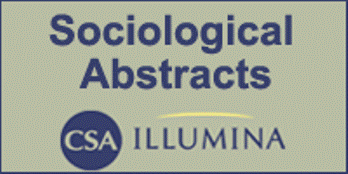Abstract
Following the unprecedented level of immigration into the UK in recent years, the issue features on a number of policy agendas, notably those around employment, where the impact of migrant workers and their relationships with indigenous workers have become topics of considerable debate. In the light of the existing evidence around migrant workers’ experience of being de-skilled and de-valued (e.g. Anderson et al 2006, Currie 2007) as well as indigenous workers’ potential hostility emerging from their fears of wage depression and substitution, the important question of how migrants negotiate their relationships within workplaces remains largely unexplored. Assuming that migrant workers are likely to be an important part of the national economy for the foreseeable future, it is time to ask the questions of how migrants negotiate their ‘fit’ into the British work environment, and how that is shaped and managed over time. In the first part of the paper we critically review the traditional conceptions of immigrant acculturation into the host society. The key concern of contemporary theories of acculturation has been with identifying individual’s orientations and how these relate to psychological adaptation (e.g. Berry 1990, Berry and Sam 1997). Significant here are also the models that recognise the interplay between hosts and migrants in forming the dispositions of the other. For example, the work of Bourhis and Montreuil (2001) suggests a variety of forms that may arise from combinations of migrants and hosts in relation to the preferred strategy of each. More recent adaptations of these frameworks have attempted to address the context dependency of acculturation strategies adopted by both migrants and indigenous members (e.g. Navas et al 2005). These latter models reveal important aspects of the divisions between public and private domains, real and ideal situations, and the ways that these can change over time. However, it is our contention that they remain limited by their location in an overly cognitive framework and a positivist research paradigm. In the second part of the paper we critically engage with this research and apply a discourse analytic approach to acculturation as a means of addressing some of the issues. We argue that despite their sophistication extant models reproduce overly static and de-contextualised accounts of acculturation. For instance, participants are methodologically fixed into a restricted number of mutually exclusive positions (either to integrate or segregate). Moreover, these positions are seen to point towards the same underlying attitudes within and across particular studies despite their taking place in different socio-historical settings (Bowskill et al 2007), most particularly labour markets. Further, such models assert the individualistic nature of the processes involved, glossing the socio-political construction of the meaning and value of acculturation. Locating the desire for, or opposition to, integration in the minds of individuals risks reifying the construct and shutting down the ways in which social practices serve to privilege or denigrate particular strategies, as well as placing the burden of adjustment on those least able to bear it. In place of these static typologies Bowskill et al suggest acculturation issues are better analysed through approaches that pay attention to ‘the micro-level construction and functions of…broader interpretive resources’ (796) but which are supplemented by a ‘macro-level attention to more global patterns of acculturation discourse and their implications for power relations’ (796). Following this approach we propose and operationalise a research agenda that pays close attention to the everyday accounts proffered by workplace actors detailing their ‘action-oriented function’ (Bowskill et al 2007: 799) and exploring their patterning by broader forces within the workplace and beyond. We present evidence around the ways in which forms of integration are positioned as moral ‘goods’; the role that indigenous workers, employers and trade unions play in such positioning; and the ways in which such positioning is accepted/contested in everyday rhetorical practice. As such the research shows how influential are the types of relationships between differing migrant groups, but also among members of the in-group, in constructing identity. For instance, based on their own observations and experiences of working next to each other, Polish individuals undergo a continual process of becoming in which they set up a contrast between themselves and other members of the in-group but also with the Romanian workers who are constructed implicitly as Poles’ opposites. This positions Polish migrant workers outside certain anticipated norms of behaviour but also under an expectation to learn them.
Keywords: Migrant worker, Acculturation, Worker Acculturation
71778 kez görüldü, 10182 kez indirildi.






